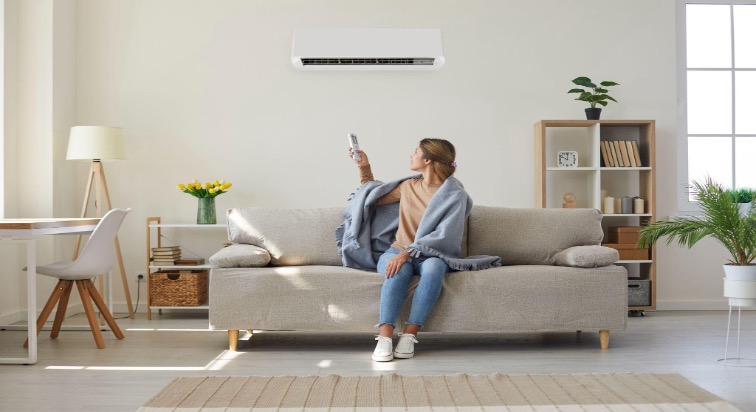The need for a well-functioning Heating, Ventilation, and Air Conditioning (HVAC) system is paramount. Failing to prepare can result in higher energy bills, or even worse, a heating breakdown in the coldest months. These scenarios can lead to health risks, increased expenses, and discomfort. This brings us to the crucial question: how prepared is your HVAC system for the coming winter? Explore these crucial tips to prepare your system for winter and fulfill your heating needs effectively.
PRE-WINTER HVAC INSPECTION AND MAINTENANCE
Proactive steps can prevent minor issues from becoming expensive repairs. Addressing small problems in a timely manner is not just a matter of good home maintenance—it’s a matter of smart finance. When winter’s chill sets in, the last thing you want is to find yourself with a malfunctioning heating system. Here are some proactive steps you can take:
- Schedule a Professional HVAC Inspection: An HVAC professional will inspect all components of your system, including the furnace, thermostat, ductwork, and electrical connections. They will check for wear and tear, ensuring that all parts are functioning as they should. They may also clean and tune the system, optimizing it for the demanding winter season. Regular inspections are key because they can uncover issues that might not be immediately noticeable, allowing you to fix them before they escalate into a major problem—and a major expense.
- Change or Clean the Air Filters: This is a task that homeowners can—and should—do regularly. Dirty air filters make your HVAC system work harder, as they restrict airflow. This not only decreases the efficiency of your system but can also lead to increased wear on its components, potentially resulting in earlier failure. Clean filters ensure the air circulating through your home is clean and healthy, free of dust and allergens. Aim to change or clean your filters every 30 days.
- Check and Seal Duct Leaks: If your ducts have leaks, warm air could be escaping into your attic or walls, causing your system to work harder to heat your home. This leads to higher energy bills and adds strain on your HVAC system. A professional can inspect your ducts for leaks and seal them as needed. Sealing your ducts can prevent heat loss, making your system more efficient and effective. This is particularly beneficial in unconditioned spaces like basements or attics, where a significant amount of heat can be lost.
ENSURING ENERGY EFFICIENCY
Winter heating costs can be a significant strain on your finances. As temperatures plummet, the desire to stay cozy and warm can lead to rising energy bills. However, this seasonal increase doesn’t have to break the bank. Consider these tips to maintain the efficiency of your system while also minimizing costs.
- Install a Programmable Thermostat to Regulate Temperatures: A programmable thermostat allows you to set specific temperatures for different times of the day, reducing the energy used when you’re asleep or not at home. For example, you can set it to lower the temperature when you’re at work and then warm up the house just before you return. Some thermostats even learn your habits over time and adjust themselves automatically.
- Seal Windows and Doors to Prevent Drafts: Even the smallest of gaps in windows and doors can allow warm air to escape and cold air to infiltrate. This means your heating system will have to work harder to maintain your desired temperature. Weatherstripping around windows and doors or using draft stoppers can make a significant difference. Caulking is also an effective solution for sealing gaps in window and door frames.
- Insulate Your Home Well: Heat rises, which means a lot of the warmth your heating system produces can escape through an inadequately insulated attic. Proper insulation acts like a thermal blanket around your house. Fiberglass, cellulose, or foam insulation in your walls, attic, and basement can dramatically reduce heat loss and help maintain a steady temperature in your home.
- Regularly Replace Air Filters to Maintain Airflow: As previously mentioned, clean air filters are essential for maintaining the efficiency of your HVAC system. A clogged filter restricts airflow, forcing the system to work harder to circulate warm air. This not only increases your energy consumption but also places additional wear and tear on the system components. It’s advisable to check your filters monthly and replace them every 30 days when you receive your electric bill.
EMERGENCY PREPAREDNESS
Preparation is vital. Winter storms can come out of nowhere, and the last thing you want is for your heating system to fail when you need it most. Being prepared offers peace of mind, keeping you safe and warm, even when the unexpected happens. Consider the following precautions:
- Have a backup plan, such as portable heaters or a fireplace.
- Keep emergency numbers handy, including that of a reliable HVAC technician.
- Stock up on essential supplies, including batteries, blankets, and non-perishable food.
CONTACT US
Preparing your HVAC system for winter is not just about ensuring a warm, cozy living space. It is about safeguarding your family’s health and comfort, minimizing stress, and avoiding unexpected, potentially high expenses. Regular inspections, conscientious maintenance, and intelligent energy practices can transform your home into a winter sanctuary. However, while DIY measures can be helpful, nothing replaces the expertise and assurance that a trained professional can offer. Contact Progressive Air Systems today to ensure your HVAC is ready for the winter season!

